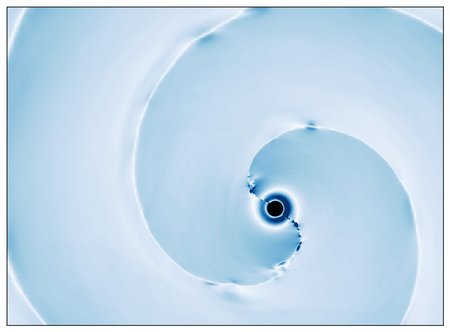A new Martian gaming adventure will come to PC in 2024.
Mars Horizon 2 will have players search for Red Planet life in this successor to the Kerbal Space Program-like “space race” 2020 adventure Mars Horizon, which had players build virtual rocket programs based on real-life space hardware.
“Reaching Mars is just the beginning as Mars Horizon 2: The Search for Life sends players to the farthest reaches of the solar system on the hunt for evidence of life,” game developer Auroch Digital and publisher Secret Mode said in an e-mailed release Tuesday (March 7).
“Players race to make discoveries ahead of rival agencies, using established scientific methodology in tandem with modern and near-future technologies to seek, recover, and analyze alien biosignatures.”
Related: Kerbal Space Program 2 is here! Spark joy with exploding rockets

(opens in new tab)
Mars Horizon 2, like its predecessor, will have players work on managing a virtual space agency in collaboration or in competition with other groups exploring space. The original game included real-life rocket types and people from space history to enrich the playing experience.
The game has some similarities with Kerbal, which also includes launch campaigns but which focuses on real-life physics. Mars Horizon 2 will be played from the perspective of mission control, however. It aims to allow users to manage staff, build facilities on different planets, design and launch rockets, and “make key decisions in tough narrative events,” according to the release.
Once you find potential evidence of life, you can process that information in a lab after skilling up through a sequence of technology advancements, the release added.
RELATED STORIES:
In real life, NASA and the European Space Agency are engaging in a sample return campaign that may bring back evidence of life on Mars as soon as 2033. The Perseverance rover has already collected and stored 10 twin samples of material, one set on the surface of the Red Planet and one inside its belly. The mission calls for Perseverance to deliver its set of samples to an awaiting spacecraft or, if needed, for two fresh fetch helicopters to nab the backup tubes on the surface.
More information about the game’s development and release will be forthcoming on Steam (opens in new tab) and via the Auroch Digital Newsletter (opens in new tab) in the coming months.
Elizabeth Howell is the co-author of “Why Am I Taller (opens in new tab)?” (ECW Press, 2022; with Canadian astronaut Dave Williams), a book about space medicine. Follow her on Twitter @howellspace (opens in new tab). Follow us on Twitter @Spacedotcom (opens in new tab) or Facebook (opens in new tab).


